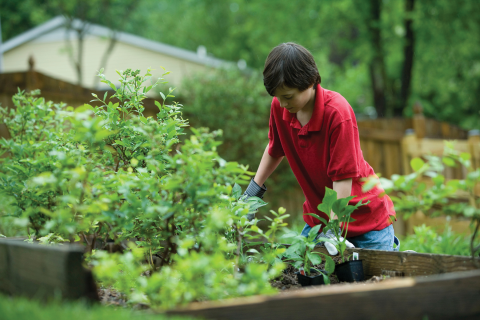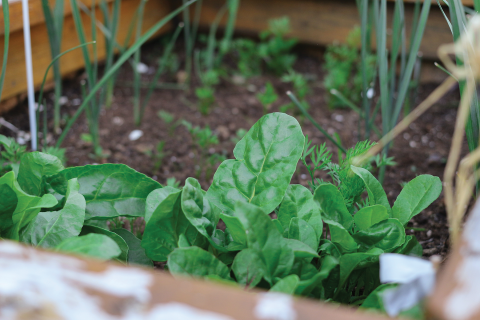Systems of Change

At one point, Coös County’s Milan Village School had a flourishing garden, explains principal Amy Huter, but, over time and with changing staff, the use of it died down. With Extension’s Well Connected Communities grant, Huter is excited to bring the garden back to life.
Well Connected Communities, funded by the Robert Wood Johnson Foundation, is a national initiative of the Cooperative Extension System and the National 4-H Council aimed at helping communities build systems of change to establish better health. In 2020, UNH Extension received this two-year grant to tackle specific issues in three counties: food access in Coös County, food access/food-related health disparities in Strafford County and substance misuse in Sullivan County.
While Extension’s Healthy Living programs have for many years utilized the volunteer help of community partners, they have yet to develop a systematic and complete volunteer development program designed to recruit, enroll, train, support and recognize volunteer leaders. The grant will support development of a more robust system for health-oriented volunteers and streamlined communication among the three coalitions for these counties.
Extension Healthy Living Field Specialist Heidi Barker, the grant’s principal investigator and project manager, has for many years educated kids and adults in Coös County about growing food and establishing healthy habits. “We want to make sure everyone in our community is getting access to healthy and local fresh food,” says Barker.
Milan Village School has a target goal of assigning one garden bed per classroom so that the growing process can become part of students’ everyday education. In the meantime, Barker has assembled kits and curriculum materials for growing indoors.

Extension also assembled meal kits for 35 families at Berlin Head Start during the winter holidays with donations from Androscoggin Valley Hospital. Staff in the hospital’s cafeteria were interested in the work that Extension was doing with schools and reached out to see how they could become involved. Extension then ordered a hydroponic unit for the hospital and staff have started growing from seeds. The food that they grow is then showcased on the hospital menu to promote healthy eating.
“Because of the work we do at Extension, we’re able to provide these resources and support. It’s capacity building that we can do with our community partners,” says Barker.
Further south, Caitlin Wollack, a 4-H program manager in Strafford County, is directing the Plant a Row Program, which provides garden kits — seeds, a planting guide and record sheet — that allow community members to plant an extra row in their existing gardens. People sign up knowing that whatever they harvest from this extra row will be donated back into the community.
Wollack says the project was started to raise awareness about food insecurity in the county. She also says it was a great way to keep community members connected during the pandemic.
Meanwhile, over in Sullivan County, a project called Youth CAN (Claremont And Newport) is bringing together a coalition of community members for youth-led strategies, activities and programs that foster positive outlooks and healthy choices.
Extension is teaming up with the Greater Sullivan County Public Health Network at Dartmouth-Hitchcock, local school systems, civic leadership offices, medical organizations and private nonprofits like West Central Behavioral Health to decrease youth substance use by creating positive, safe experiences that welcome whole-body health.